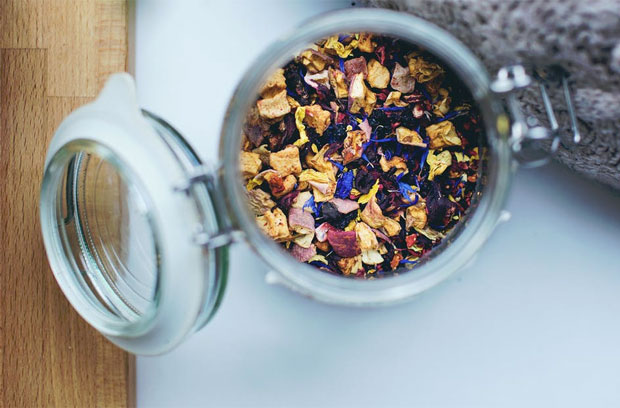The Health Benefits in Your Brew: The Science Behind a Cup of Tea

The Health Benefits in Your Brew: The Science Behind a Cup of Tea
Here in the UK, we love a cup of tea and we’re not alone — it’s the second most commonly consumed beverage in the world after water. It’s not surprising as there are so many flavours and types to choose from. It’s not just a tasty and warming drink though, tea is also bursting with lots of natural health benefits. I love drinking tea — especially during the autumn and winter months.
Some people are worried about consuming too much tea due to the caffeine content but the concerns are not necessary — the health benefits of tea are so impressive and there are many benefits of having some caffeine too.
Lynne Garton, dietitian and member of the Tea Advisory Panel (TAP) explains:
“Drinking four cups of tea daily is associated with heart health benefits, in particular reduced risk of heart disease and stroke. Tea contains polyphenols, caffeine, fluoride and L-theanine, and remains an important source of hydration. Tea’s heart health benefits are related to its polyphenol content. Tea polyphenols help to relax the blood vessels so leading to control of blood pressure, and they protect ‘bad’ LDL cholesterol from being oxidized, which makes it less harmful.”
Caffeine often gets a bad reputation even though it’s a natural substance found in over sixty different types of plants. The Tea Advisory Panel are just about to publish their findings in a report called Caffeine: The Health Aspects of Tea Investigated which provides a review of the latest data with findings that may be surprising. Dr Carrie Ruxton is an independent dietitian and member of TAP explains some of the benefits of caffeine: it improves mood, increases alertness and reduces the sense of tiredness and pain. The evidence is very strong, so much that the European Food Safety Authority thinks that certain levels of caffeine in healthy drinks and foods should be able to make a series of health claims.
Dr Carrie Ruxton is an independent dietitian and member of TAP explains some of the benefits of caffeine: it improves mood, increases alertness and reduces the sense of tiredness and pain. The evidence is very strong, so much that the European Food Safety Authority thinks that certain levels of caffeine in healthy drinks and foods should be able to make a series of health claims.
Many people worry about the diuretic effects of caffeine but research shows that healthy adults would need to drink 5-8 cups of tea at once to experience bladder effects such as more visits to the toilet. EFSA has concluded that caffeine intakes from all sources up to 400 mg per day do not give rise to safety concerns for healthy adults. You can drink many cups of tea before getting even near that amount!
A cup of tea only contains 40-50mg of caffeine if made with a tea bag. This level of caffeine can provide a mild improvement in cognitive function without any risk of negative effects on sleep and anxiety. You would usually need more than 100mg of caffeine close to bedtime for it to have a negative effect on your sleep.
Other benefits of tea are that it’s naturally sugar free and, here in the UK, usually served with milk which makes a small contribution to mineral intakes over time. Tea is also a great source of antioxidants that are very beneficial to our health. You can read more about the health benefits of tea by visiting the Tea Advisory Panel website.
To conclude, you don’t need to worry about the caffeine levels in tea. As you’re making yourself a cuppa, focus on the many health benefits of a cup of tea and the bonus of the moderate caffeine levels. Then enjoy your brew!
Collaborative Post.





